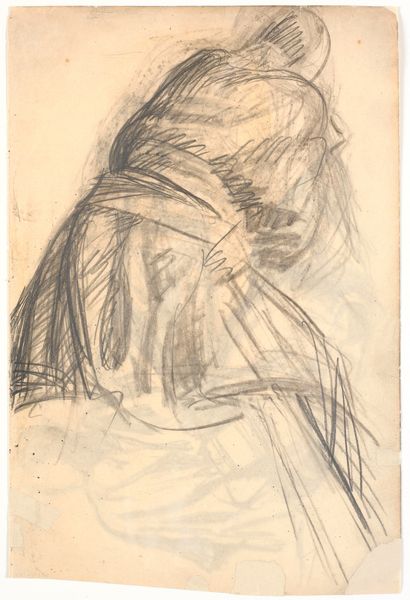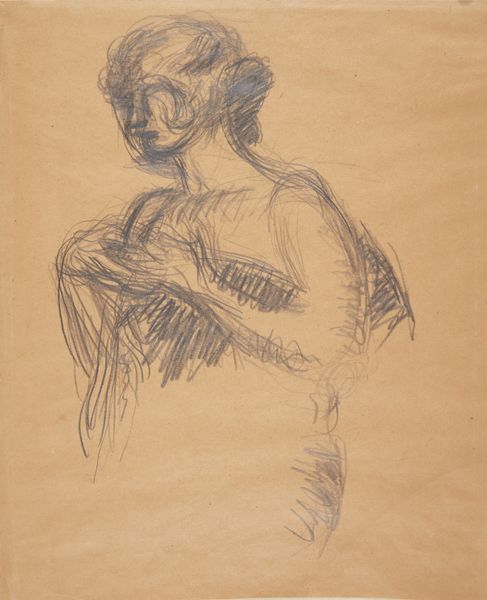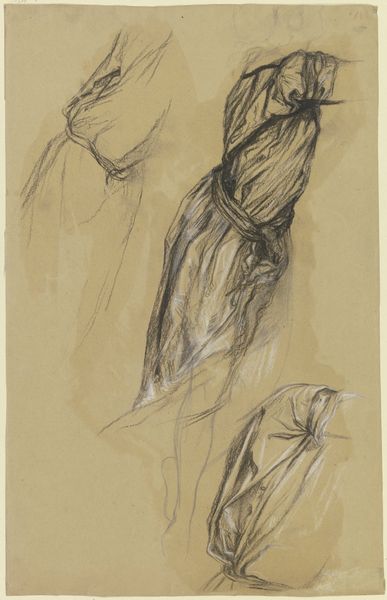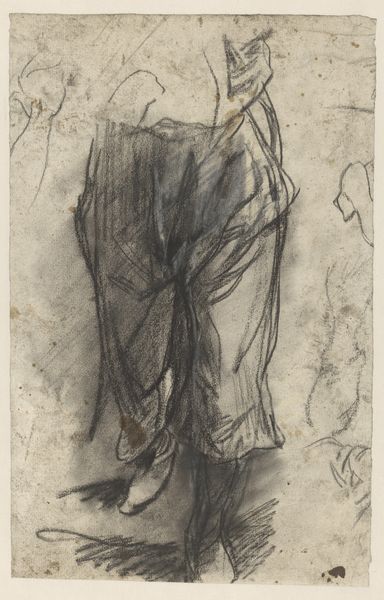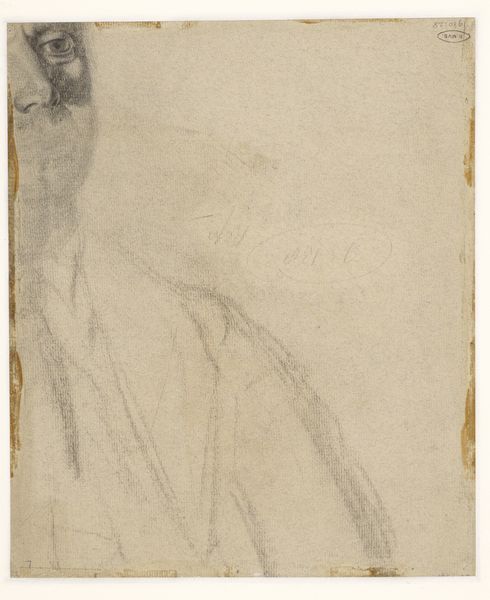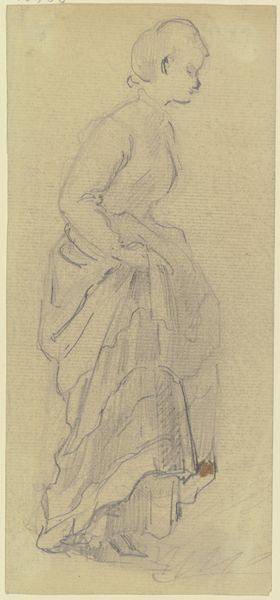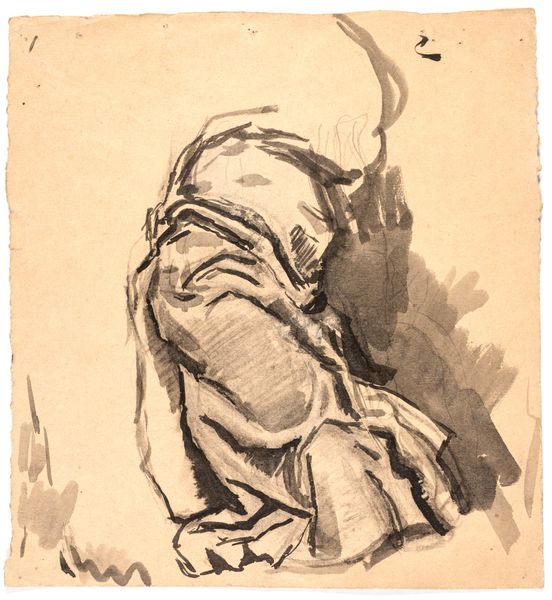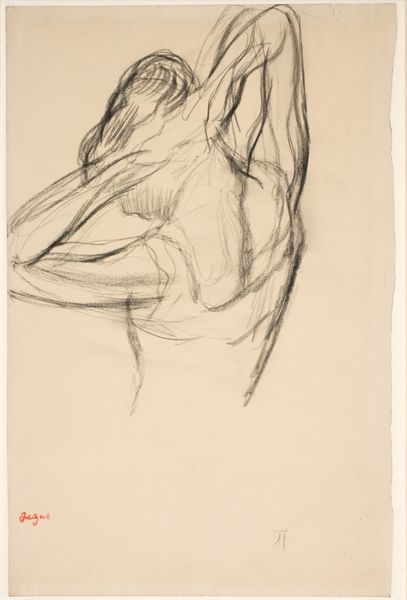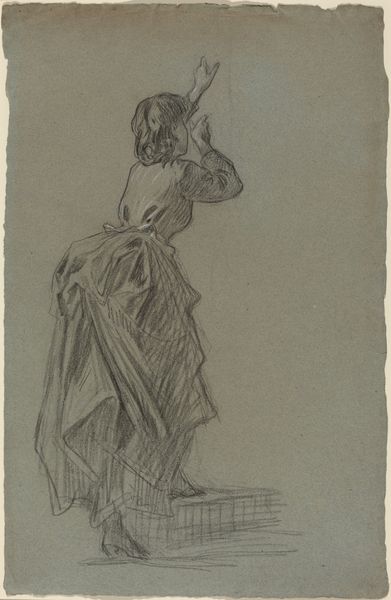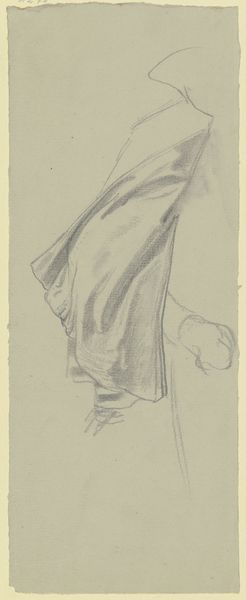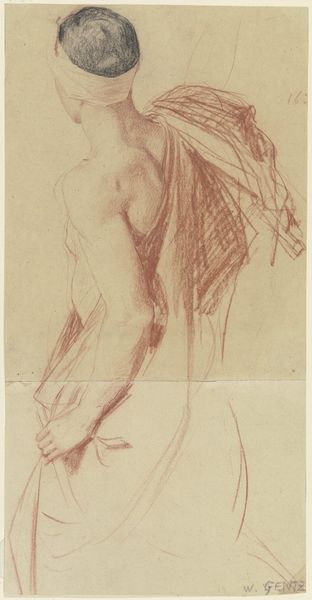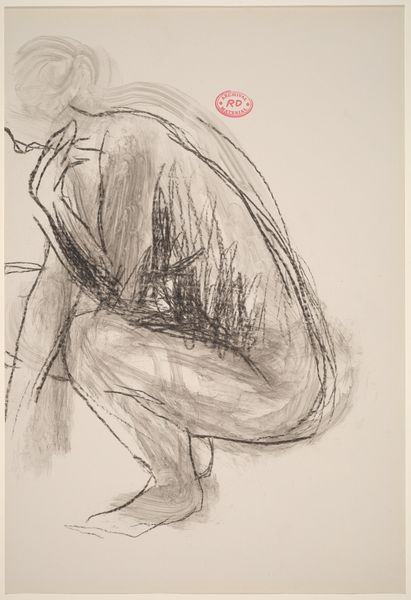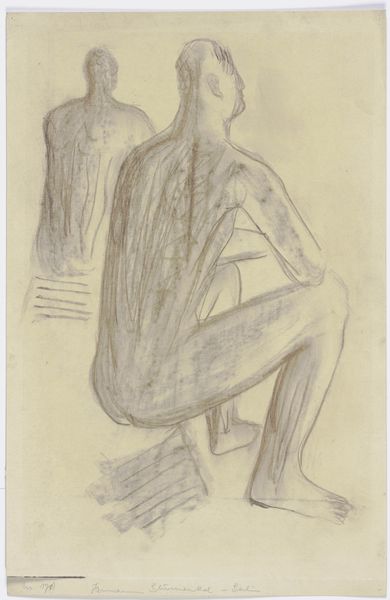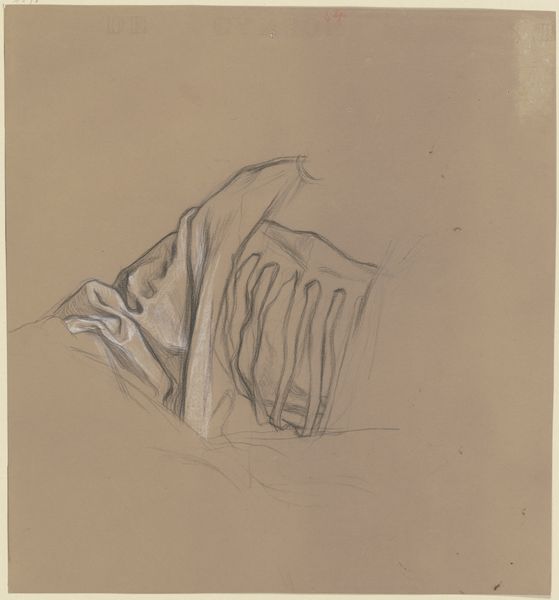
Figurstudie til maleriet "Maria salver Kristi fødder", 1907. Apostel nr. 3 t.h. i billedet 1905 - 1906
0:00
0:00
drawing, pencil
#
portrait
#
drawing
#
light pencil work
#
ink drawing
#
pen sketch
#
pencil sketch
#
incomplete sketchy
#
figuration
#
personal sketchbook
#
ink drawing experimentation
#
pen-ink sketch
#
pencil
#
sketchbook drawing
#
sketchbook art
Dimensions: 263 mm (height) x 208 mm (width) (bladmaal)
Curator: Niels Larsen Stevns created this drawing, titled "Figure Study for the Painting 'Mary Anoints Christ's Feet', 1907. Apostle No. 3 on the Right in the Picture" between 1905 and 1906. What's your first impression? Editor: Raw, almost brutal in its honesty. Look at the economical use of line, how the pencil just *scratches* the paper. I immediately sense the weight and labor implied. Curator: It is intriguing to witness the artist’s process, to be granted a glimpse into the making of a painting through such preliminary sketches. It feels so intimate, as if one is peering over the artist's shoulder. Editor: Absolutely. And consider the paper itself – its probable source, its processing. It isn't precious; it’s a working material, a support for testing ideas, bearing witness to labor. Curator: It's as though Stevns sought to capture the very essence of his subject, the posture, and perhaps the inner spirit of the Apostle, even at this early stage. One feels a pensive quietude emanating from this quickly rendered, almost ethereal, study. Editor: Note too that the medium informs the message. Pencil – easily erased, easily amended – suggesting the instability of faith, perhaps? Curator: That's an interesting perspective. The impermanence of the medium reflecting a questioning of faith. The fact that it is part of a larger composition, allows you to extrapolate meanings that would be muted when standing alone. It becomes a piece of a grand puzzle. Editor: Precisely! The means of production here highlight how much art-making relies on those provisional, practical supports – paper, pencil – which, themselves, have histories rooted in industry and consumption. What gets discarded matters. Curator: A powerful reminder that even within a religious narrative, the materiality and the making process offers yet another avenue to engage and enrich our experience of art. Editor: Agreed. Seeing art through its process, opens an appreciation for both the maker's ingenuity and all those often overlooked materials involved in their work.
Comments
No comments
Be the first to comment and join the conversation on the ultimate creative platform.
